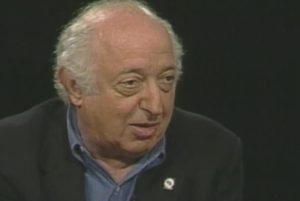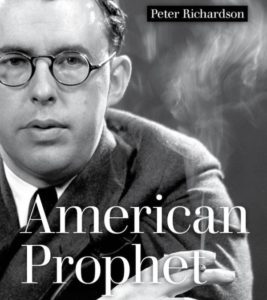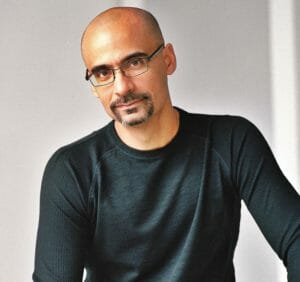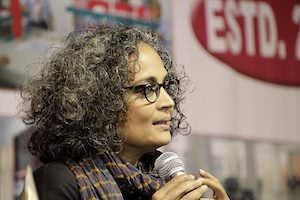Remembering Richard Schickel
The film world lost a key figure Saturday with the passing of the distinguished critic and filmmaker, whose work Truthdig was privileged to feature in the latter years of his career.
Richard Schickel
The film world lost one of its classic acts Saturday with the passing of accomplished critic Richard Schickel. He died at 84 in Los Angeles after suffering the effects of dementia and several strokes, as The New York Times and The Associated Press reported Monday, based on word from his family.
He was a prolific writer who, in addition to reviewing movies for Time and Life magazines and Truthdig over the course of his long and distinguished career, also wrote, co-wrote or edited nearly 40 books on the industry and its luminaries. Somewhere in there, he found time to write or direct just about the same number of documentaries. Schickel was awarded an honorary doctorate from the American Film Institute, as well as a Guggenheim fellowship, the Maurice Bessy Prize for film criticism, the British Film Institute Book Prize, the National Board of Review’s William K. Everson Award and the Telluride Film Festival’s Silver Medallion.
Here’s more from the Times’ obituary:
Richard Zoglin, a fellow critic and now a contributing editor at Time, said that what distinguished Mr. Schickel among his peers was his comprehensive knowledge of the movie industry’s players and processes coupled with “an astute critical sensibility” that resisted the trendy.
“He wrote from the perspective of a film insider,” Mr. Zoglin said in a phone interview, “but responded to films from a gut level and never lost the sense of being an average filmgoer reacting to what was on the screen.”
Mr. Schickel pulled no punches. Reviewing Stanley Kramer’s “Guess Who’s Coming to Dinner” in 1967, the interracial love story starring Sidney Poitier, Katharine Hepburn and Spencer Tracy, Mr. Schickel groused, “Kramer is earnestly preaching away on matters that have long ceased to be true issues.”
He even dismissed “The Maltese Falcon,” John Huston’s 1941 film noir classic starring Humphrey Bogart, as “cramped and static” and was damning in a retrospective look at “Gone With the Wind” in The Atlantic in 1973.
Mr. Schickel wrote that two measures of a movie’s quality should be how much a viewer retains and how much one wants to see it again.
By both measures, he loved “Citizen Kane,” “Double Indemnity,” “The Godfather,” “The Searchers,” “Chinatown,” “Fargo,” “Meet Me in St. Louis,” “Yankee Doodle Dandy,” “Pinocchio” and the original “King Kong,” as well as outliers like Audie Murphy’s western “No Name on the Bullet” and François Truffaut’s “The 400 Blows.”
He also liked quite a few of the films he reviewed for Truthdig. He brought his assured expertise, coupled with refreshing accessibility and, not infrequently, droll humor to the site’s Arts and Culture section. As the AP confirms, Schickel’s deep knowledge of movies was the product of thousands of hours spent taking them in:
Schickel estimated that he had seen more than 22,000 motion pictures, beginning with Walt Disney’s “Snow White and the Seven Dwarfs” when he was 5 years old.
But the Milwaukee-born writer was no snob about his passion.
In his 2015 memoir, he wrote: “I just like to be there in the dark watching something — almost anything, if truth be known.”
We’ll give the last words to Los Angeles Times film critic Kenneth Turan, whose tribute included a character sketch that captured, and honored, Schickel well:
Witty, analytical, tough-minded but always fair, a gifted stylist who believed in honesty but steered clear of cheap shots, Schickel was a model critic for half a century, most of it as Time magazine’s regular reviewer.
His career as a weekly critic began in the long-gone days of Life magazine and extended into the Internet Age with a stint at the popular website Truthdig. Schickel was a lifelong smoker who took pleasure in frustrating much-younger doctors who demanded he stop, and his stamina was legendary. As a high school football player in his native Wisconsin, he once told me with delight, he regularly played offense and defense in the same game.
No matter how many films he’d seen over how many decades, Schickel never lost his enthusiasm for what was new and exciting. Seeing his eyes literally twinkle when the conversation turned to what he’d enjoyed was to know that, without a doubt. …
The joy he felt was palpable, as was the enthusiasm that enabled him to be such a great critic over so many years. It may sound like the kind of cliché he would have rigorously avoided to say we’ll not see his like again, but in Richard Schickel’s case, it’s the truth.
–Posted by Kasia Anderson
As we navigate an uncertain 2025, with a new administration questioning press freedoms, the risks are clear: our ability to report freely is under threat.
Your tax-deductible donation enables us to dig deeper, delivering fearless investigative reporting and analysis that exposes the reality beneath the headlines — without compromise.
Now is the time to take action. Stand with our courageous journalists. Donate today to protect a free press, uphold democracy and uncover the stories that need to be told.







You need to be a supporter to comment.
There are currently no responses to this article.
Be the first to respond.